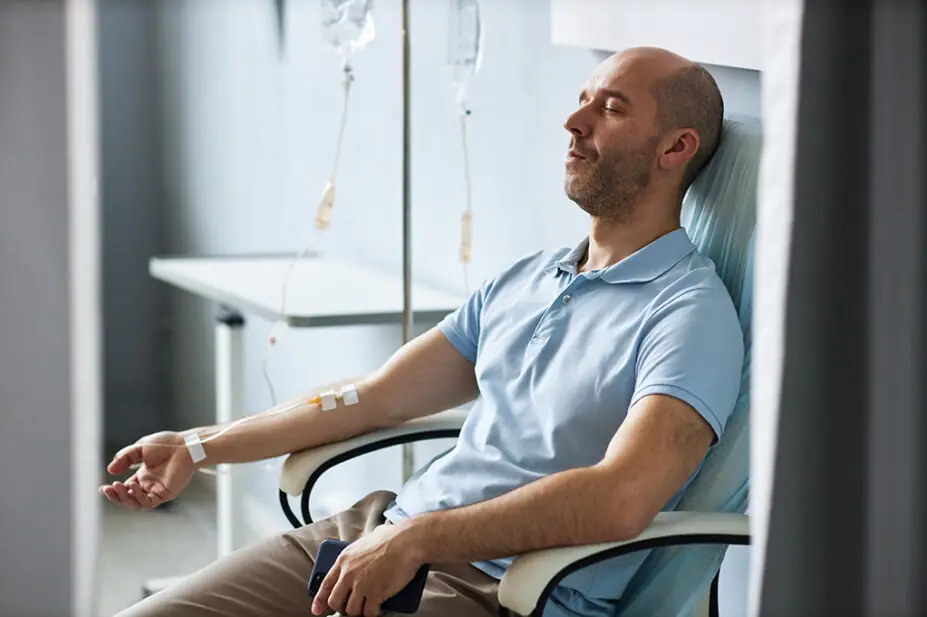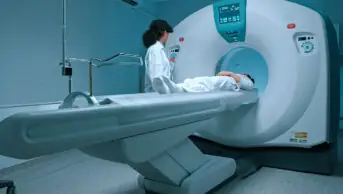
Shutterstock.com
The National Institute for Health and Care Excellence (NICE) has recommended a targeted therapy for blood cancer that offers “significant survival benefits” for some patients on the NHS in England.
In draft guidance, published on 13 June 2025, NICE approved belantamab mafodotin (Blenrep; GSK), in combination with bortezomib (Velcade; Janssen-Cilag) and dexamethasone, as a second-line treatment for patients with multiple myeloma.
Belantamab mafodotin is an antibody-drug conjugate, which is given as an infusion.
It combines an antibody conjugated to the anticancer drug maleimidocaproyl monomethyl auristatin F.
In a statement, published alongside the draft guidance, NICE said that people in England would be the “first in the world” to access the “breakthrough” treatment, and it would benefit around 1,500 patients.
Results from the DREAMM-7 trial revealed that, after one year on belantamab mafodotin combination treatment, 71% of patients showed no disease progression compared with 51% of patients on standard care (i.e. daratumumab plus bortezomib and dexamethasone).
The three-year survival rate was 74% in the belantamab mafodotin group, compared with 60% in the standard care group; however, NICE noted that the trial is still ongoing.
The therapy can only be offered to people if they have already had one previous line of treatment, which contained immunomodulatory drug lenalidomide, and if their condition is refractory to lenalidomide or they cannot tolerate lenalidomide, the draft guidance added.
Manufacturer GSK said that the number of people having treatment at second-line for whom lenalidomide would be suitable “would be small”.
Multiple myeloma is an incurable cancer of blood plasma cells. Patients with the disease can experience complications, such as frequent infections and kidney problems.
Around 6,200 people in the UK are diagnosed with the disease each year, according to charity Myeloma UK.
Helen Knight, director of medicines evaluation at NICE, said: “We’re delighted that people in England will become among the first in the world to access belantamab mafodotin for this indication.
“This recommendation demonstrates our commitment to getting the best care to patients fast, while ensuring value for the taxpayer.”
Shelagh McKinlay, director of research and advocacy at Myeloma UK, said it was “fantastic to see the UK at the forefront of myeloma treatment globally”.
“We worked very hard to get BVD [Blenrep, Velcade and dexamethasone] approved, and we know this treatment will make a huge difference to the lives of thousands of people with myeloma.”
McKinlay added: “While this is good news for most, NICE’s decision to limit access to BVD [to those who have previously had one prior treatment including lenalidomide] is hugely frustrating and will no doubt cause unnecessary uncertainty and distress to those for whom this new drug could have been a lifeline.
“Rest assured, we will keep pushing every step of the way for BVD to be made available across the rest of the UK and to everyone who will benefit from it — no matter where they are on their treatment journey or which drugs they’re previously received.
“Until we have a cure, it is absolutely vital that all patients are given as many options to control their disease as possible.”
The consultation on the draft guidance closes on 3 July 2025.
In October 2024, NICE lifted restrictions on the bispecific monoclonal antibodies teclistamab and elranatamab (Elrexfio; Pfizer) for patients with relapsed or refractory multiple myeloma who have received three or more lines of treatment and whose myeloma has progressed.


